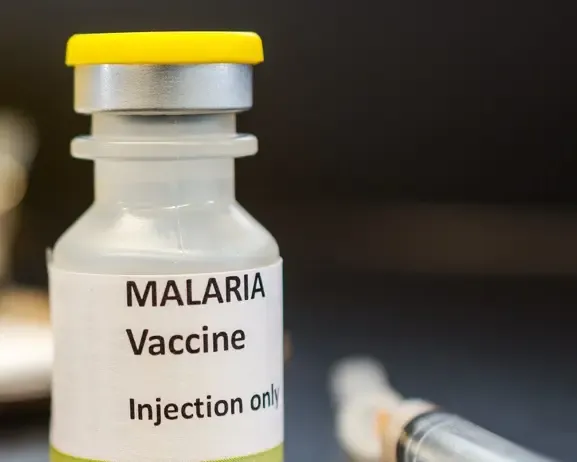First Blood-Stage Malaria Vaccine Shows Promise Amid Rising Cases: Report

New Delhi, Dec 19 (NationPress) The initial blood-stage malaria vaccine RH5.1/Matrix-M is being recognized as a promising component of a developing malaria vaccine strategy, as stated in a report on Thursday.
The analysis by GlobalData, a data and analytics firm, highlights that there are currently 11 other malaria vaccines undergoing Phase II development.
A recent study conducted by researchers in Burkina Faso and the UK indicates that RH5.1/Matrix-M is both safe and effective, exhibiting a high level of immunogenicity.
This double-blind, randomized, controlled phase 2b trial involved 361 children aged between 5 and 17 months, revealing that RH5.1/Matrix-M is 55 percent effective against clinical malaria when administered on a delayed third-dose schedule at 0, 1, and 5 months.
Moreover, the vaccine showed over 80 percent efficacy against elevated levels of malaria parasites, suggesting its potential in preventing severe cases of the disease. The findings, published in The Lancet Infectious Diseases, indicated that RH5.1/Matrix-M is generally safe and well-tolerated, with no serious adverse events recorded.
“RH5.1/Matrix-M has the potential to be the first blood-stage malaria vaccine made available on the market. This could significantly enhance the currently available malaria vaccines and serve as a vital second line of defense for those at highest risk of malaria,” stated Stephanie Kurdach, an Infectious Disease Analyst at GlobalData.
Malaria is a disease transmitted by mosquitoes, caused by parasitic Plasmodium protozoans, primarily spread through bites from infected female Anopheles mosquitoes. Symptoms can vary widely, ranging from fever, chills, and headaches to more severe manifestations like confusion, seizures, and respiratory difficulties.
Kurdach emphasized that while progress has been made and some countries have been declared malaria-free, the burden of this disease remains significant, especially in the World Health Organization’s (WHO) African Region.
Currently, there are only two malaria vaccines that have received WHO prequalification and are recommended for use in children: GSK’s Mosquirix and Serum Institute of India’s R21/Matrix-M.
These vaccines target the early sporozoite stage of the parasite to prevent malaria infection.
However, as immunity diminishes over time, sporozoites can infect the liver, leading to blood-stage clinical malaria infections.
The creation of a blood-stage malaria vaccine would not only replace existing vaccines but also provide an additional layer of protection.
“There are 11 other malaria vaccines currently in Phase II development, including pre-erythrocytic and blood-stage vaccines from companies such as BioNTech, GSK, the National Institute of Allergy and Infectious Diseases (NIAID), and Vac4All SAS,” Kurdach remarked.
“At this moment, there are no new malaria vaccines in Phase III development or pre-registration,” she added.









